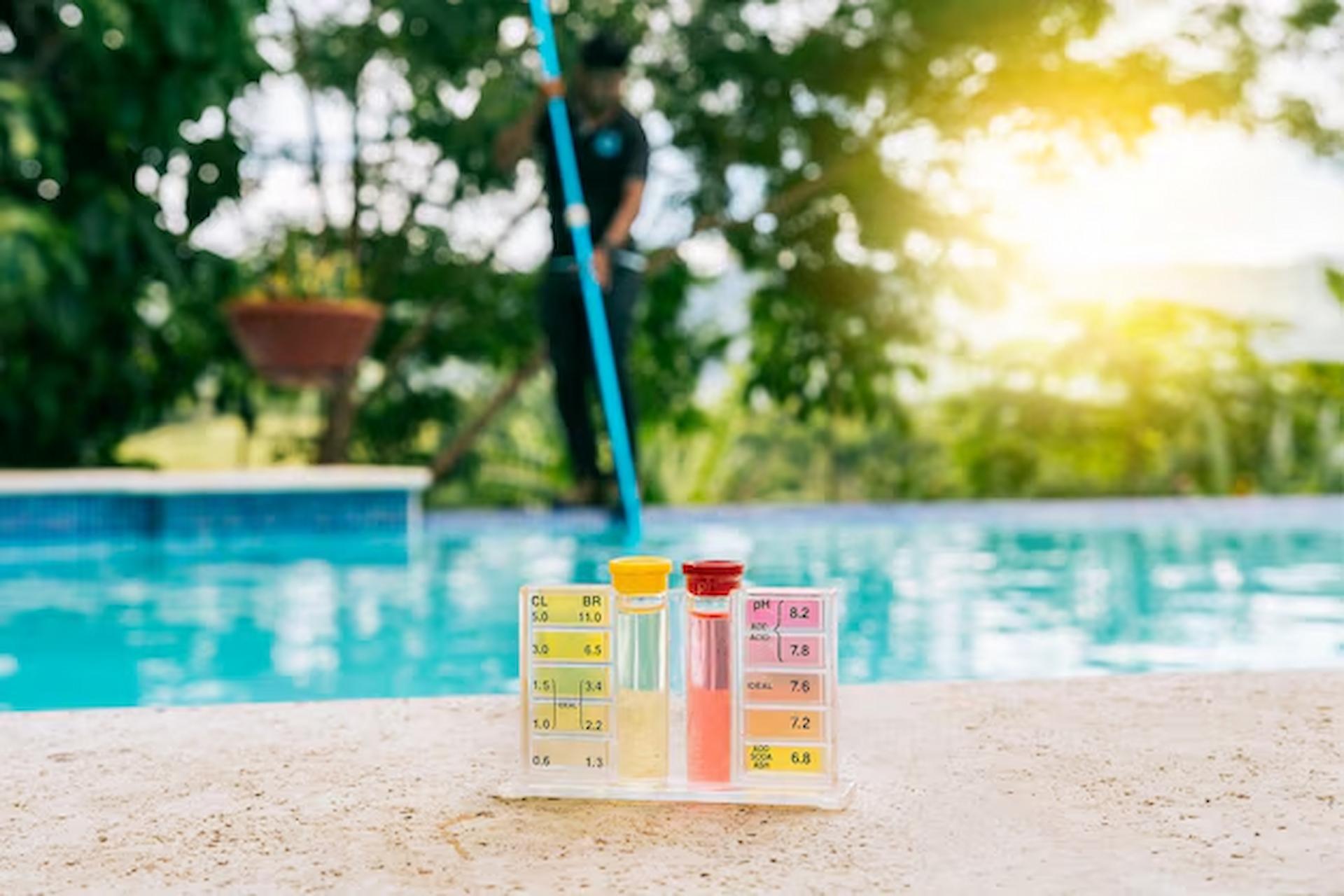Maintaining your swimming pool in optimal condition begins with the right tools. One of the most essential is a reliable testing kit. But not all kits are created equal. In this article, discover what truly matters when choosing a testing kit for pool maintenance. Learn how to avoid common pitfalls, what features to prioritise, and why accuracy, ease of use, and durability matter more than you think.
Maintaining a clean, healthy pool isn’t just about cleaning and adding chemicals. It’s about balance. And that balance starts with accurate testing. Whether you’re a pool owner or a professional caretaker, selecting the right testing kit for your pool water is crucial.
Many people rely on guesswork, but this can lead to unsafe water conditions, damaged pool equipment, or uncomfortable swimming experiences. That’s why investing in a trustworthy testing kit is one of the smartest steps you can take.
The best testing kit for pool maintenance will help you monitor essential elements, such as chlorine, pH, alkalinity, and calcium hardness, with confidence and consistency.
Let’s explore the key features to look for when selecting the right kit—and how to ensure it meets your specific needs.
Why Accurate Testing Matters
Water that looks clean may still be out of balance. If the chlorine level is too low, bacteria can thrive. If the pH is too high, it can irritate skin and eyes. A high calcium level might lead to scaling, while low levels can corrode your pool system. In short, accuracy matters.
Using a reliable testing kit for pool care ensures:
- Safe and sanitary water for swimmers
- Longer lifespan for pumps, filters, and other equipment
- More effective use of pool chemicals, saving time and money
Many kits on the market claim to offer accurate results, but not all live up to the promise. That’s why knowing what to look for is key.
Key Features of a High-Quality Pool Testing Kit
When choosing a kit, don’t just go for the cheapest or most colourful packaging. Focus on these key features that separate the best from the rest:
- Wide Testing Range
A quality kit should test for more than just chlorine and pH. Look for options that also measure:
- Total alkalinity
- Cyanuric acid (stabiliser)
- Calcium hardness
- Bromine (if your pool uses it)
These components affect how chlorine works and how stable your water remains over time.
- Ease of Use
The kit should be simple to use, even for beginners. Look for:
- Clear instructions
- Colour-coded reagents
- Easy-to-read results (either with colour charts or digital displays)
Complex kits with complicated procedures can lead to errors in testing.
- Speed of Results
Time matters. Good kits provide results within minutes. Avoid kits that require long wait times, as they can complicate routine maintenance.
- Durability and Storage
You don’t want a flimsy box that falls apart or reagents that expire too quickly. A good kit includes:
- Airtight, spill-proof containers
- Protective cases
- Long shelf-life for chemicals
Durability also adds to value for money.
Digital vs Manual Kits: Which One is Better?
There are two main types of pool test kits—manual drop-based kits and digital meters. Each has its pros and cons.
Manual Kits:
- More affordable
- It can be just as accurate if used correctly.
- Require colour matching, which can be subjective
Digital Meters:
- Offer precise numerical readings
- Eliminate human error in reading colours.
- They are more expensive and require calibration
Your choice depends on your budget, the frequency of pool testing, and your comfort level with technology.
Reagent-Based vs Test Strip Kits
You’ll also find two main formats of manual test kits—reagent kits and test strips.
Reagent Kits:
- Involve adding drops of liquid to water samples
- Provide more detailed and accurate results.
- Slightly more complex to use
Test Strips:
- Dip and compare to a colour chart
- Fast and easy
- Slightly less accurate than reagents
For everyday users, test strips may suffice. For those who require precision—such as pool service providers or larger facility owners—reagent kits are often preferred.
Maintenance and Calibration: Often Overlooked
Once you invest in a reliable testing kit for pool care, keep it functioning optimally. Clean tools after each use. Store in a cool, dry place. Check expiration dates on chemicals and replace when needed.
For digital kits, follow the manufacturer’s recommended calibration schedule. Skipping this can lead to false readings and unsafe water conditions.
Trusted Brands to Consider
While we won’t promote any specific brand, look for kits that are widely used and recommended by pool professionals. Read customer reviews, check for certifications, and avoid kits without clear usage guides or manufacturer support.
Good indicators of trust include:
- ISO certification
- National or international pool industry approval
- Excellent after-sales support
Final Thoughts
Maintaining a pool requires more than cleaning—it demands careful attention to water chemistry. That begins with choosing a dependable testing kit for pool use.
A top-quality kit ensures water safety, prolongs equipment life, and reduces costs associated with chemical use. When shopping, focus on accuracy, ease of use, range of tests, and brand reputation.
A small investment in a reliable testing kit goes a long way in protecting your pool, your health, and your peace of mind.





